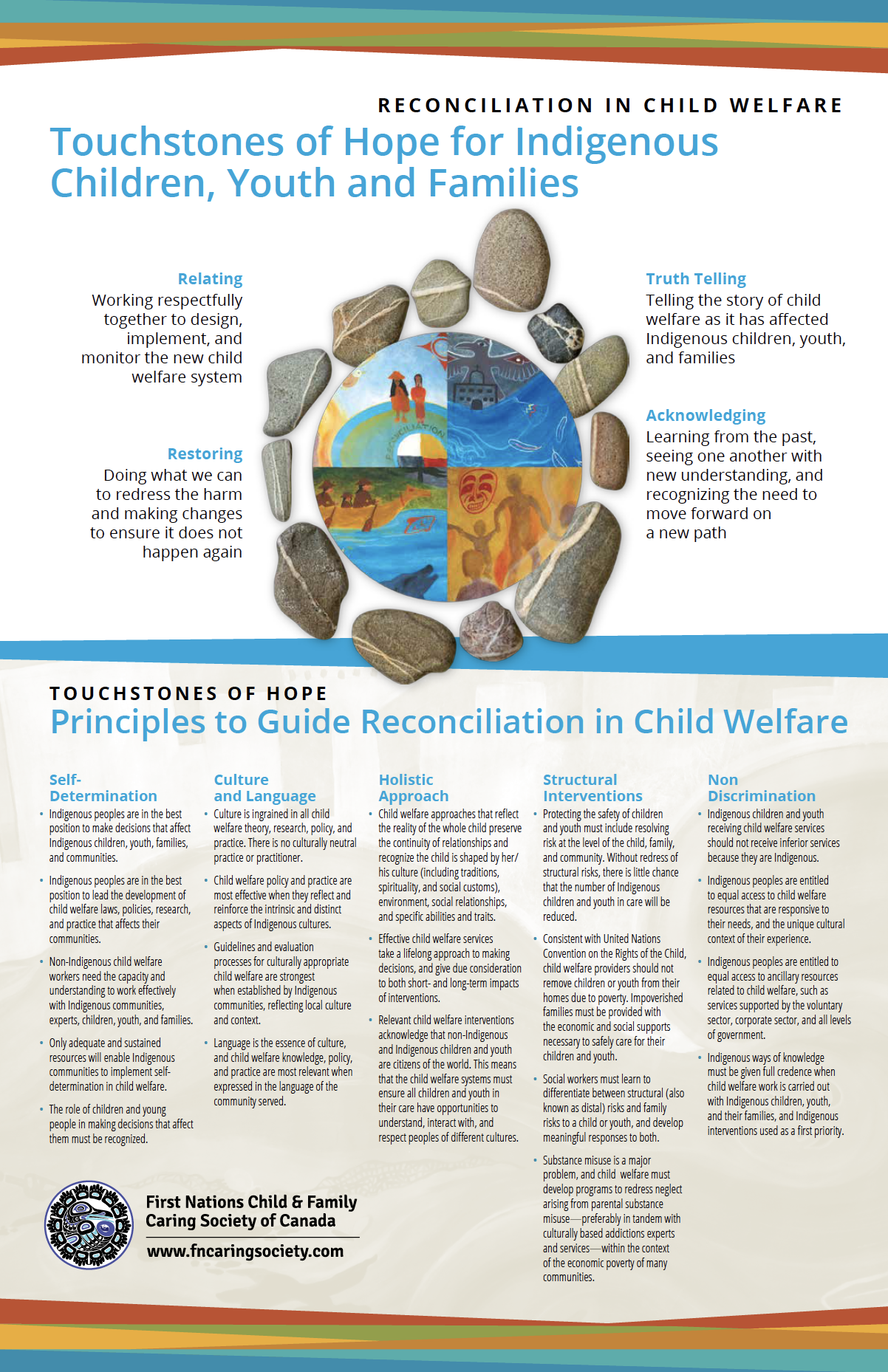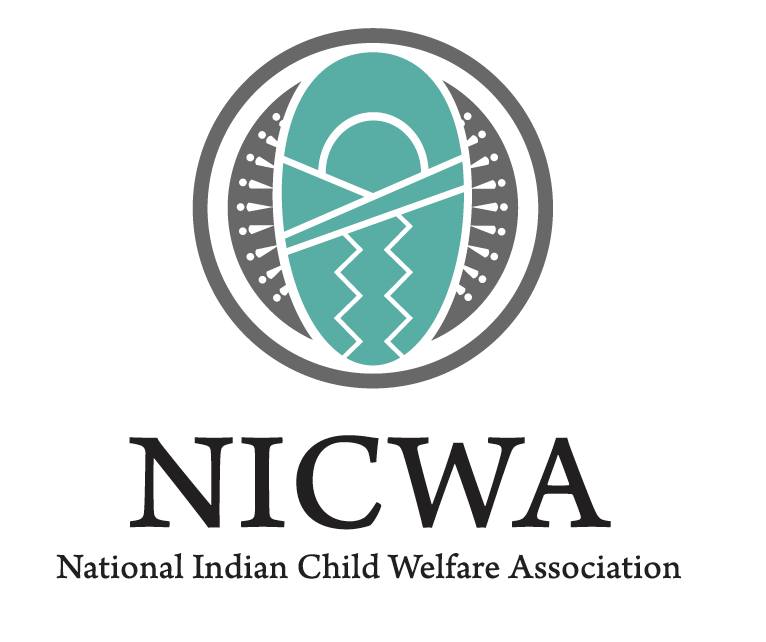Reconciliation in Child Welfare
The Touchstones of Hope movement for reconciliation in child welfare is about promoting and entrenching the Touchstones of Hope principles and process in grassroots control, preparing community-based facilitators to work with communities and organizations, and developing culturally-driven vision plans and next steps which are meant to inform child welfare practice and policies specific to regions and Nations.
Success of the movement relies on giving space for both Indigenous and non-Indigenous peoples to participate in reconciliation:
- Truth Telling: Telling the story of child welfare as it has affected Indigenous children, youth, and families.
- Acknowledging: Affirming and learning from the past and recognizing the need to move forward on a new path.
- Restoring: Making changes and doing what we can to redress the harm to ensure it does not happen again.
- Relating: Working respectfully together to create, implement, and monitor progress of our vision plans and next steps.
The reconciliation process is guided by five Touchstones of Hope principles that are defined and brought to life by those involved in the movement so that they reflect the unique context of Indigenous Nations and communities and serve as the foundation of the movement:
- Self-Determination: Indigenous peoples are in the best position to make decisions that affect their communities and lead the development of laws, policies, research and practice.
- Culture and Language: Indigenous cultures are ingrained in all theory, research, policy and practice that affect their communities.
- Holistic Approach: Approaches to working with Indigenous communities recognize and reflect the distinct realities of the whole community including culture (traditions, spirituality and social customs), language, environment and socioeconomic factors.
- Structural Interventions: We stand up to injustices to protect the rights of all Indigenous and non-Indigenous peoples, including children and youth.
- Non Discrimination: Indigenous peoples are entitled to equal access to resources and services that are responsive to their needs and the unique cultural context of their experiences
To learn more about the Touchstones of Hope, read Reconciliation in Child Welfare: Touchstones of Hope for Indigenous Children, Youth and Families or review the resources below.
Questions about the Touchstones of Hope? Please contact us!


